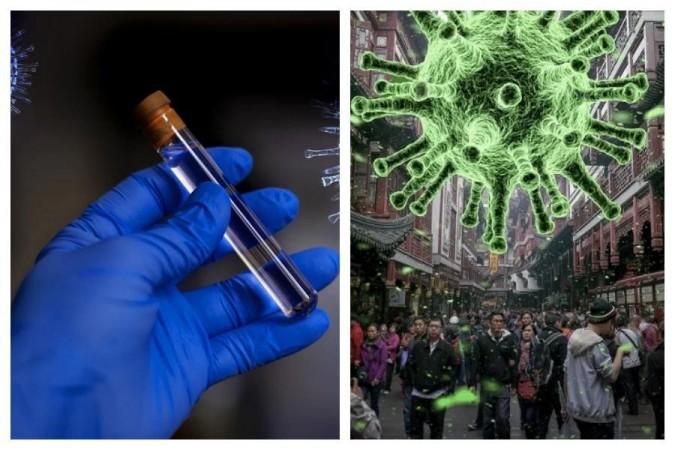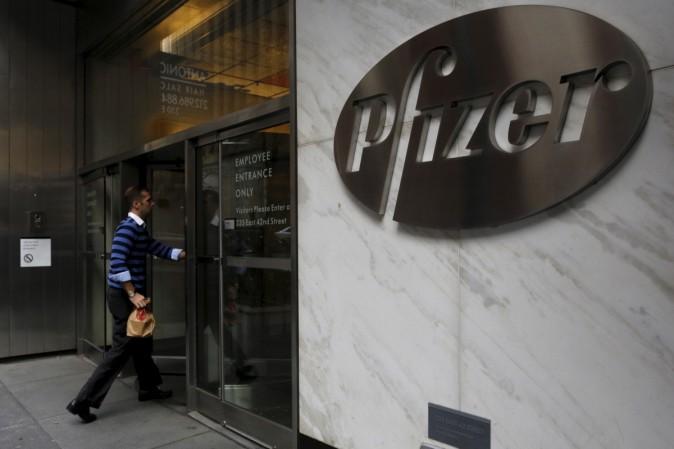The Serum Institute of India has already given a heads up to make the Oxford COVID-19 vaccine available for all healthcare workers and elderly people by around February 2021 and by April for the general public but not much is known about its effectiveness unlike the Pfizer and Moderna ones.
It is agreeable that developing a vaccine is just not that easy because it's not only about its effectiveness but other factors such as the supply constraints, budget, logistics, infrastructure are also important, and then, people should be willing to take the vaccine.
Pricing the vaccines is set at a maximum of Rs.1,000 for two necessary doses for the public, depending on the final trial results and regulatory approvals, Serum Institute's CEO Adar Poonawalla said at the Hindustan Times Leadership Summit (HTLS), 2020 on Thursday, that despite the availability of vaccine by next year, every Indian will probably get vaccinated only by 2024.

"The government of India will be getting it at a far cheaper price at around $3-4 because it will be buying in a large volume and get access to the price that is similar to what COVAX has got. We are still pricing it far cheaper and more affordable than other vaccines we have in the market today," Poonawalla said.
When asked about the efficacy of the vaccine, he said the Oxford-Astrazeneca vaccine is so far proving to work very well even in elderly people, which was a concern earlier.
"It has induced a good T-cell response, which is an indicator for your long-term immunity and antibody response but then again, time will only tell if these vaccines are going to protect you in the long term. Nobody can answer that for any of the vaccines today," Poonawalla said.
Responding to a question on the safety aspect, he said there have been no major complaints, reactions, or adverse events, adding, "We would need to wait and see. The efficacy and immunogenicity results from the Indian trials will come out in about a month-and-a-half."
Pfizer, Moderna to apply for emergency authorisation
Earlier this week, US drugmaker Pfizer and its German partner BioNTech SE had confirmed after a final analysis of the clinical trial of their vaccine that the shot was 95 percent effective at preventing the coronavirus disease. The two partners have already announced to file for an emergency use authorization with the Food and Drug Administration that could allow their Covid-19 vaccine to be used in the high-risk areas across the United States by next month.

Meanwhile, Moderna Therapeutics Inc. became the latest company to announce groundbreaking success rates from its novel coronavirus vaccine candidate, mRNA-1273. No other vaccine has delivered such strong success rates so far by December. Moderna is not only the first Pharma company that will be rolling out a vaccine on such a large scale but their vaccine reportedly also carries a whopping 94.5 percent efficacy rate.
Naturally, this has given billions across the world hope to see a COVID-free world soon. But there is no vaccine that does not deliver side-effects, and there are a few vaccination side-effects that users may still have to face after using the Moderna vaccine.
According to reports, the Pfizer vaccine induces 'hangover' like symptoms in patients post-inoculation. Similar ones were also observed in volunteers who have been injected with the Russian vaccine, Sputnik V. Participants who were injected with Moderna's experimental jab have also reported about low-grade fever, arm pain soreness and fatigue like side-effects after intake of two-dose schedule.
Unfortunately, nothing much is known about the Oxford vaccine and in that case, depending only upon this vaccine itself would be a matter of huge challenge because as per government data nearly 400 million doses of vaccines would be required in India by next July.
Asked when the SII will apply for an emergency authorization, Poonawalla said as soon as the UK authorities and the European Medicines Evaluation Agency (EMEA) approve it for emergency use, it will apply to the drug controller for emergency use authorization in India.
"But that will be for a limited use for frontline workers, healthcare workers and elderly people," he added.
Children would have to wait a little longer till the safety data is out, but the good news is that Covid-19 is not so bad and serious for them, Poonawalla said.
Coronavirus in India
On Friday, India's coronavirus tally crossed the 90-lakh mark with 45,882 new infections reported in the last 24 hours, according to the Union Ministry of Health and Family Welfare.
The total cases in the country now stand at 90,04,366 including 4,43,794 active cases and 84,28,409 recoveries. With 584 new deaths, the toll mounted to 1,32,162. This is the thirteenth consecutive day when India reported less than 50,000 cases in a day. The last time daily new cases crossed the 50,000-threshold was on November 7.
Maharashtra has 80,728 active coronavirus cases, the highest in the country, followed by Kerala with 68,352 and Delhi with 43,221.
According to the Indian Council of Medical Research (ICMR), a total of 12,95,91,786 samples tested for COVID-19 up to November 19, of these, 10,83,397 samples were tested yesterday.
On Thursday, the Union Health Ministry said that India's active caseload has fallen under 5 per cent and the new recoveries continue to overtake the daily new cases continuously for the past 47 days. It also said that the national coronavirus recovery rate now stands at 93.58 per cent.












